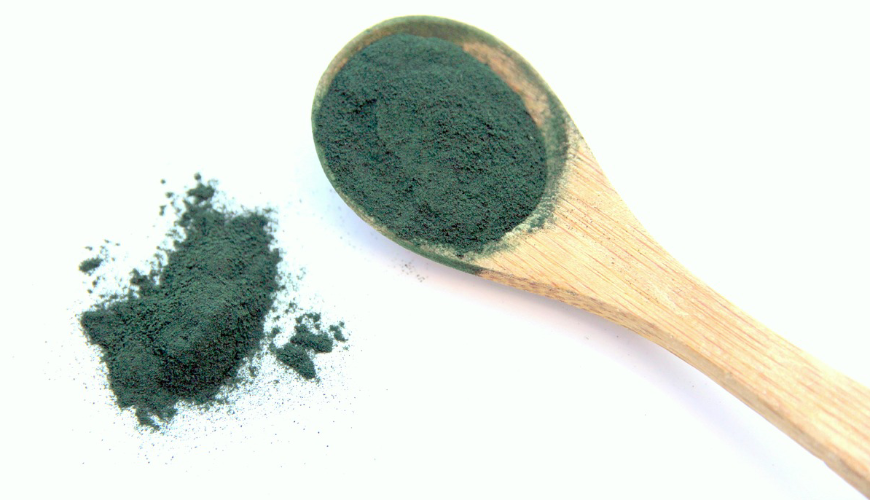
Spirulina is a blue-green algae whose health benefits will surprise you

What is spirulina?
Spirulina is very often referred to as superfood. It is a blue-green algae that provides a number of health benefits to the body. In this article, we'll take a look at what spirulina is, what health benefits it has, and how you can easily incorporate it into your diet as well.
Spirulina is a type of cyanobacteria that occurs naturally in both fresh and salt water. Spirulina is one of the very old organisms and has existed on planet Earth for more than 3 billion years. Due to its nutritional value, it has been used by humans as a dietary supplement for thousands of years, especially in the areas around Lake Chad in Africa and Lake Texcoco in Mexico, where it was part of the diet of the Mexican and Aztec cultures.
Health benefits of spirulina
Spirulina is highly valued for its diverse health benefits. It contains many vitamins, minerals and other bioactive substances. However, Spirulina is also a rich source of high quality vegetable protein that is easily digestible and contains all essential amino acids. It also contains high amounts of beta-carotene, which helps protect eyesight and promotes skin health.
Spirulina is also known for its anti-inflammatory properties, thanks to its high content of antioxidants such as phycocyanin, which can help against inflammation and protect against oxidative cell damage. Taking spirulina can support a healthy immune system, aid in cholesterol regulation, and support heart and vascular health. Because of these properties, spirulina is often recommended as a dietary supplement to improve overall health and vitality. We will now take a closer look at some of the effects of spirulina.
Supporting the immune system
Spirulina is an important immune system supporter. It contains phycocyanin, a powerful antioxidant that not only protects cells from oxidative stress, but also stimulates immune cells and supports their efficient functioning. In addition, spirulina contains B vitamins, iron and other minerals that are essential for maintaining a strong immune system. This combination of nutrients makes spirulina an ideal dietary supplement for those who want to naturally boost their defenses.
Detoxifying properties
Thanks to its high content of chlorophyll, the pigment that gives algae its characteristic green colour, spirulina aids the body's natural detoxification process by removing toxins and heavy metals from the blood. Chlorophyll is also known for its ability to bind to toxic substances and promote their elimination from the body, which helps protect the liver and promote healthy liver function. In addition, spirulina contains other antioxidants and supports overall detoxification processes.
Benefits for the heart and blood vessels
Spirulina provides significant benefits for heart and vascular health due to its rich content of essential nutrients. Studies show that spirulina can help lower cholesterol and blood pressure, two key risk factors for cardiovascular disease. It also contains gamma-linolenic acid, an omega-6 fatty acid that supports blood vessel health by helping to maintain the elasticity and stability of blood vessel walls. Because of these properties, regular intake of spirulina may contribute to overall heart and vascular health and reduce the risk of heart disease.
Potential risks and side effects
Although spirulina is considered safe, you should be cautious if you suffer from autoimmune diseases or are allergic to seafood, as it can cause allergic reactions.
How to incorporate spirulina into your diet
Incorporating spirulina into your diet is easy due to its availability in various forms, with powder or tablet form being typical.
Spirulina powder can easily be added to smoothies, dressings, soups or sprinkled on salads for a nutritional boost.
Spirulina tablets are a convenient alternative for those traveling or looking for a quick and convenient solution.
For those new to taking spirulina, it is recommended to start with a small amount and gradually increase the dose to allow the body to get used to the new ingredient in the diet. Spirulina will not only improve the nutritional value of your meals, but it will also give them an attractive green colour and slightly nutty taste.
The popularity of spirulina is growing
The spirulina market is growing, thanks to the increasing awareness of its health benefits. This trend is expected to continue in the years to come and it is no wonder. Spirulina offers many health benefits and is easy to incorporate into everyday diets. Its ability to support the immune system and improve overall health makes it a valuable addition to your diet.

